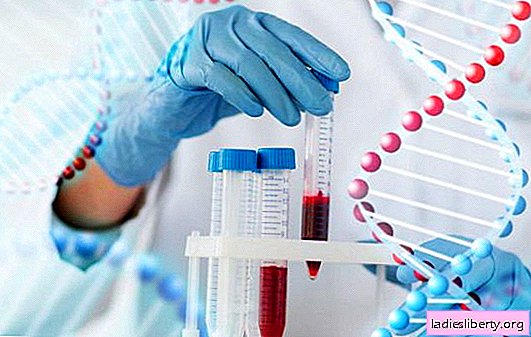
Knowledge is power, but not in the case of genetic risks. A recent study suggests that a simple knowledge of genetic risks greatly affects the physiology of the body. The consequences of genetic testing are more complex than scientists thought before.
What is the main problem with genetic testing?
Over 10 years, researchers have identified genetic risk factors for certain diseases. DNA tests have become faster, cheaper, more accurate and affordable for the general public.
Each year, millions of people gain access to information about their genetic risk for Alzheimer's.
According to some estimates, only in 2017, 1 out of 25 people in the United States ordered personalized genetic tests.
One of the reasons why experts conduct these tests is to inform the person about the possible consequences.
Scientists believed that they could provide an incentive for patients to change their lifestyle in order to reduce risk.
Placebo and nocebo: what role do these phenomena play in DNA tests?
Debate is underway about whether knowledge of genetic risk factors can motivate people to change their lifestyle. There is some evidence that knowledge of risks has a negative effect on people.
A new study in the nature of human behavior is approaching this new area from a slightly different direction. In it, scientists are wondering if simply obtaining information about genetic risk can change individual risk.
The placebo effect is so strong that in trials it can have the same effect as real drugs.
The opposite of placebo (nocebo) - when the "dummy" has an adverse effect on a person. As Stanford experts explain, simply revealing the potential side effects of drugs can increase their prevalence. Even if suppliers emphasize that these side effects are accidental or rare, they occur.
Exercise and Obesity Genes: How Simple Auto-Suggestion Changed People
A study group told 116 participants that they were taking a test to examine the relationship between DNA and diet. Each participant passed a physical activity test to assess their abilities. Then the research team gave them food. After eating, scientists measured the levels of certain peptides to evaluate how hungry or full the participants were.
At the final stage, scientists examined the genome of each participant into two genes. One was associated with physical activity, and the other with obesity. As expected, during exercise and blood tests after meals, researchers could see small differences associated with these specific gene variants.
A week later, the participants returned for the second part of the experiment. This time, the researchers revealed to them the genetic results. Scientists gave one group the correct data, and the other incorrect. People with genes that protected them from obesity believed they had the obesity gene, and vice versa.
After the study, the participants again went in for sports and underwent analyzes after eating. As scientists expected, the new knowledge of participants about their genetic risk can change their physiology in a measurable way.
People who realized that they had a protective gene against obesity had 2.5 times more satiety hormone. Conversely, people who, researchers said, were prone to obesity, showed almost no physiological changes.
In other words, participants showed significantly worse test results if they thought they were predisposed to worse results. Most striking in these results is the strength of the effect. Sometimes the effect of genes on the physiology of an individual was less than the effect of simple phrases about (non-existent) genetic risk.
Specialists plan to continue their research. Leading scientist Alia Krum concludes that DNA tests are overrated. The negative results of genetic testing can cause long-term and physiological harm to humans. Therefore, it is recommended to weigh all the risks and benefits before undergoing tests.











